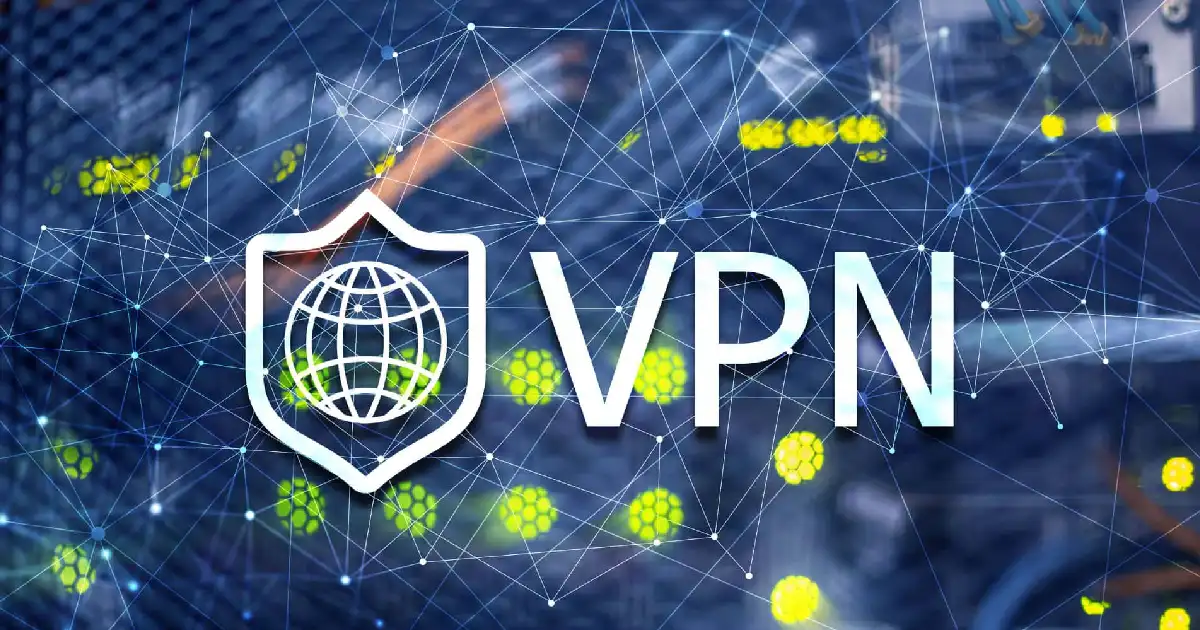In an age where our lives are intricately intertwined with the digital world, ensuring our privacy and security online has become a paramount concern. As we browse, shop, communicate, and conduct various transactions on the internet, the risk of our sensitive information falling into the wrong hands looms large. This is where Virtual Private Networks (VPNs) come into play, emerging as a powerful tool for safeguarding our digital footprint.
Understanding the Digital Landscape
The internet, once considered a vast open space for information exchange, has evolved into a complex ecosystem where privacy is often compromised. Cyber threats, surveillance, data breaches, and geo-restrictions pose significant challenges to individuals and businesses alike. As a response to these challenges, VPNs have gained popularity as a proactive measure to secure online activities.
What is a VPN?
A Virtual Private Network (VPN) is a technology that establishes a secure and encrypted connection over the internet. It acts as a tunnel, encrypting your data and routing it through a server located in a different geographical location. This not only shields your online activities from prying eyes but also provides you with a level of anonymity.
The Core Functions of a VPN
- Encryption: VPNs use encryption protocols to scramble your data, making it unreadable to anyone who might intercept it. This ensures that even if your internet connection is compromised, your information remains secure.
- Anonymity: By masking your IP address, VPNs add a layer of anonymity to your online presence. This prevents websites and online services from tracking your location and browsing habits.
- Bypassing Geo-Restrictions: VPNs enable users to access content that may be restricted based on geographical location. By connecting to a server in a different country, you can circumvent regional restrictions and access a more open internet.
- Securing Public Wi-Fi: Public Wi-Fi networks are often vulnerable to cyber attacks. VPNs encrypt your data, safeguarding it from potential threats when connected to public networks.
- Privacy Protection: VPNs act as a shield against surveillance by internet service providers (ISPs), government agencies, and other entities interested in monitoring online activities.
Choosing the Right VPN
Selecting the right VPN is crucial to enjoying its benefits to the fullest. Consider the following factors when making your choice:
- Security Features: Look for a VPN that employs robust encryption protocols, such as AES-256-bit encryption, and offers additional security features like a kill switch to disconnect your internet if the VPN connection drops.
- Server Locations: A wide range of server locations allows you to choose the best connection for your needs. More servers also mean better performance and the ability to bypass geo-restrictions effectively.
- Logging Policy: Opt for a VPN provider with a strict no-logs policy. This ensures that your online activities are not stored or monitored, contributing to a higher level of privacy.
- Speed and Performance: VPNs can impact your internet speed. Choose a provider with high-speed servers to minimize any potential slowdown in your connection.
- Compatibility: Ensure that the VPN is compatible with your devices and operating systems. The best VPNs offer support for a wide range of platforms, including desktops, laptops, smartphones, and tablets.
Step-by-Step Guide to Using a VPN
- Select a VPN Provider: Research and choose a reliable VPN service based on your needs and preferences.
- Sign Up: Create an account with the chosen VPN provider and choose a subscription plan that suits your requirements.
- Download and Install: Download the VPN application on your device and follow the installation instructions provided by the service.
- Login: Use your credentials to log in to the VPN application.
- Choose a Server: Select a server location from the options provided by the VPN. This choice can impact your connection speed and the ability to access region-specific content.
- Enable the VPN: Toggle the VPN switch to connect to the chosen server. Once connected, your internet traffic is encrypted and routed through the VPN server.
- Check Your IP Address: Verify that your IP address has changed by using online tools or websites that display your public IP.
- Enjoy Secure Browsing: With the VPN active, you can now browse the internet with enhanced security, privacy, and the ability to bypass geo-restrictions.
Common Myths About VPNs
- VPNs Are Only for Tech Experts: Many VPNs are designed with user-friendly interfaces, making them accessible to individuals with varying levels of technical expertise.
- VPNs Slow Down Internet Speed: While some speed reduction may occur due to encryption, reputable VPN providers invest in high-performance servers to minimize this impact.
- VPNs Are Only for Privacy Paranoids: VPNs are valuable tools for anyone concerned about online security and privacy, not just those with extreme privacy concerns.
- VPNs Are Illegal: VPNs are legal in most countries, and their use is generally accepted as a means to enhance online security and privacy.
- VPNs Are Only for Hiding Illegal Activities: While VPNs provide anonymity, their primary purpose is to enhance online security and privacy for lawful activities.
Real-World Applications of VPNs
- Remote Work: VPNs allow employees to securely connect to their company’s network from anywhere, ensuring the confidentiality of corporate data.
- Accessing Geo-Restricted Content: Users can access streaming services, websites, and content that may be restricted in their geographical location.
- Online Banking: VPNs add an extra layer of security when conducting online transactions, protecting sensitive financial information.
- Public Wi-Fi Security: When connected to public Wi-Fi networks, VPNs safeguard your data from potential threats.
- Bypassing Censorship: In countries with restricted internet access, VPNs enable users to bypass censorship and access a free and open internet.
VPNs and Privacy Concerns
While VPNs offer a robust solution for enhancing online privacy, it’s essential to be aware of potential privacy concerns related to VPN usage. Some VPN providers may log user data, potentially compromising the anonymity that VPNs aim to provide. Therefore, it’s crucial to choose a VPN service with a clear and transparent logging policy.
The Future of VPN Technology
As technology continues to advance, so does the landscape of online threats. VPNs are evolving to meet these challenges, with innovations such as WireGuard, a new and efficient VPN protocol gaining traction. The future of VPNs likely involves enhanced security features, improved performance, and increased ease of use, making them more accessible to a broader audience.
Conclusion
In a world where our digital presence is both expansive and vulnerable, a VPN serves as a reliable ally in fortifying our online security and privacy. Whether you’re a business professional, a remote worker, or someone who simply values their digital privacy, understanding how to navigate the digital realm safely with a VPN is an essential skill in the modern age. By taking the time to choose the right VPN, understanding its features, and integrating it into your online activities, you empower yourself to browse, communicate, and transact with confidence in an increasingly interconnected world.




